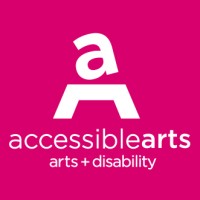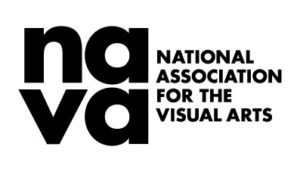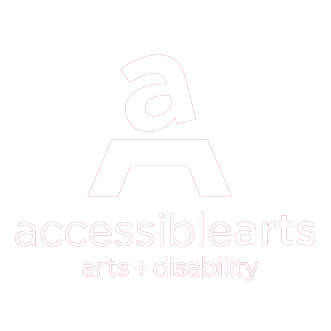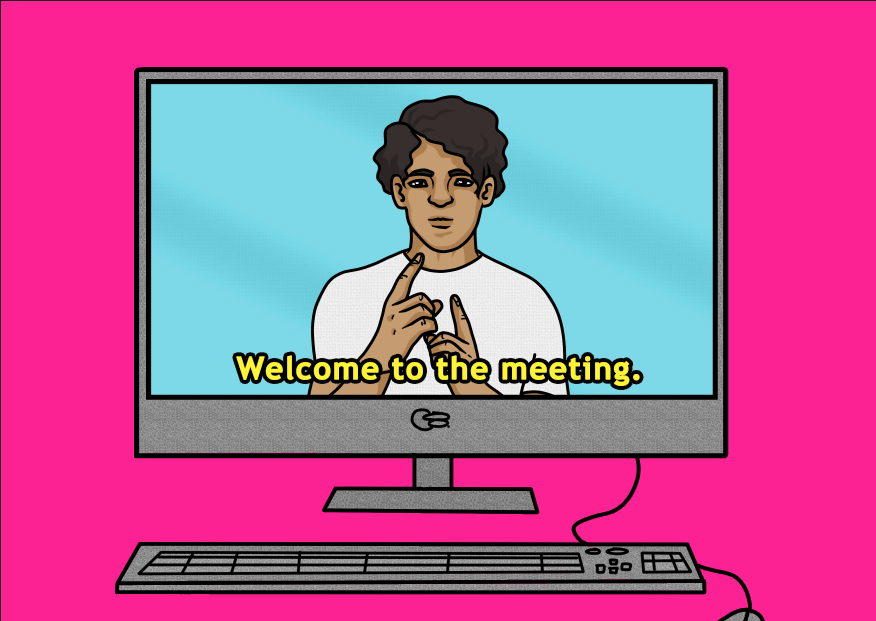Accessing the Code of Practice
A consultation meeting hosted by NAVA and Accessible Arts via Zoom 1:00pm – 3:00pm AEST Monday 6 September 2021.
NAVA and Accessible Arts are inviting expressions of interest to participate in a national consultation meeting to advise on the accessibility and usability of the NAVA Code of Practice for the Australian Visual Arts Craft and Design Sector.
During this past year, Accessible Arts has provided advice to ensure the accessibility of the major revision of the Code via a series of discussion papers, as well as via a Disability Focus Group made up of eight artists and arts workers with disability or who are d/Deaf.
The aim of this next stage of consultation is to build on the advice already received. We are now expanding this consultation work to anyone who is interested in contributing.
Findings from the Disability Focus Group to date are below.
You can find information about the Code of Practice revision project and the current Code of Practice on the NAVA website. To access the Code of Practice you will need a free login to the NAVA website using an email address and password.
When
Consultation will be facilitated by Daniel Savage, Accessible Arts Project Officer (ACT) and held online via Zoom 1:00pm – 3:00pm AEST Monday 6 September 2021.
Captions and Auslan interpretation will be provided.
Register your interest
To express your interest in participating in this consultation please contact Holly Morrison via email hmorrison@visualarts.net.au or phone 1800 046 282 by 11:59pm Monday 23 August 2021.
Please let us know:
- Why you would like to attend
- A bit about your experience in the visual arts sector
- Whether you have had any previous experience with NAVA (i.e. as a NAVA Member, participated in previous consultations, attended a NAVA event)
- Any access requirements
This consultation will have a limited number of participants (12). We will be in touch with those who have submitted an expression of interest on 30 August 2021. All participants will be paid a fee.
We are also happy to hear from anyone who is not able to attend the consultation meeting – please get in contact with Holly with thoughts you would like to share about accessibility and the Code of Practice.
If you have any questions or need assistance with accessing any information regarding this consultation please do not hesitate to us.
Holly Morrison – Best Practice Coordinator, NAVA
1800 046 282
Findings from the Disability Focus Group to date
In the first meeting, the Disability Focus Group discussed the accessibility of the Code of Practice in regard to how information could be accessed and presented. This included the language that the Code uses, universal design, how information could be simplified, additional resources such as videos, animations, case studies and Auslan videos, referral to other organisations and sharing with their communities. Participants discussed the need to communicate how the Code can assist artists, why it is important, and the need to have information on how to navigate and use the Code. They also discussed framing the Code from a human rights perspective and a need to identify what access and inclusion mean.
Feedback was provided on the website including the need for adaptive tools such as the ability to change the font size, contrast, colours, use text to voice. It was noted that these accessibility settings should be available across the entire website and accessibility options should be readily available on a website. Participants agreed that there should be no barrier to accessing the Code as this can make access difficult while also making people feel excluded.
In the second meeting, the group discussed the content of the revised Code of Practice in regard to information about accessibility. It was resolved that the Code of Practice would include a statement and general information about access and provide a disability arts framing in the Principles, Ethics and Rights section of the Code, as well as include more specific information and strategies throughout all other sections of the Code where applicable. It was suggested that this information could be presented as a set of questions or provocations for the reader rather than being prescriptive in detail. The group also discussed the kind of language that the Code would use, focusing on strengths based language rather than deficit based.
It was highlighted that the Code should focus on information about the working relationship between artists with disability and organisations rather than organisations working with audiences with disability, as there is already information on this topic available elsewhere. Group members also discussed different ways of working and perspectives on time, and the benefits of integrating these into the working relationships between artists and organisations.


ENDS

